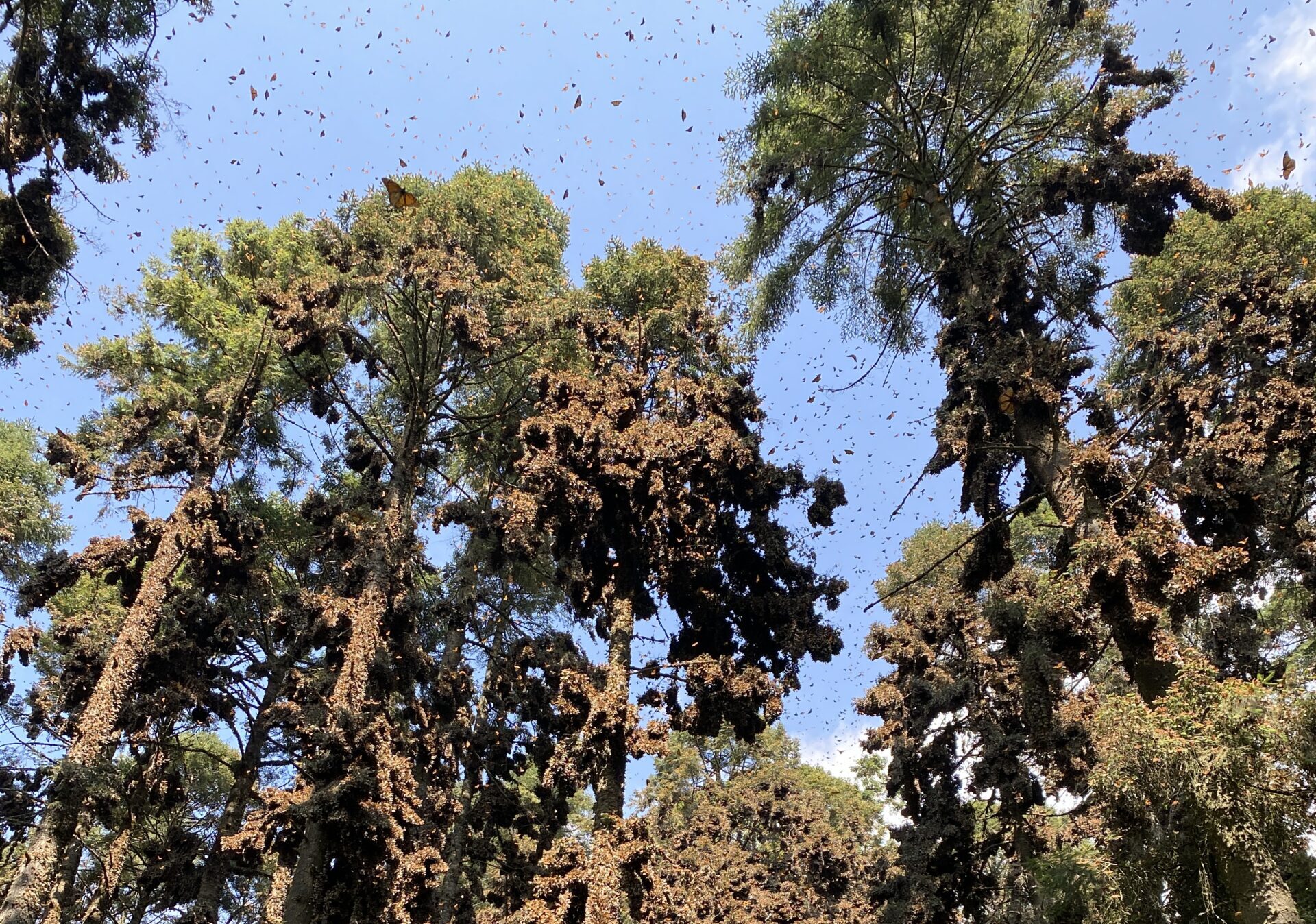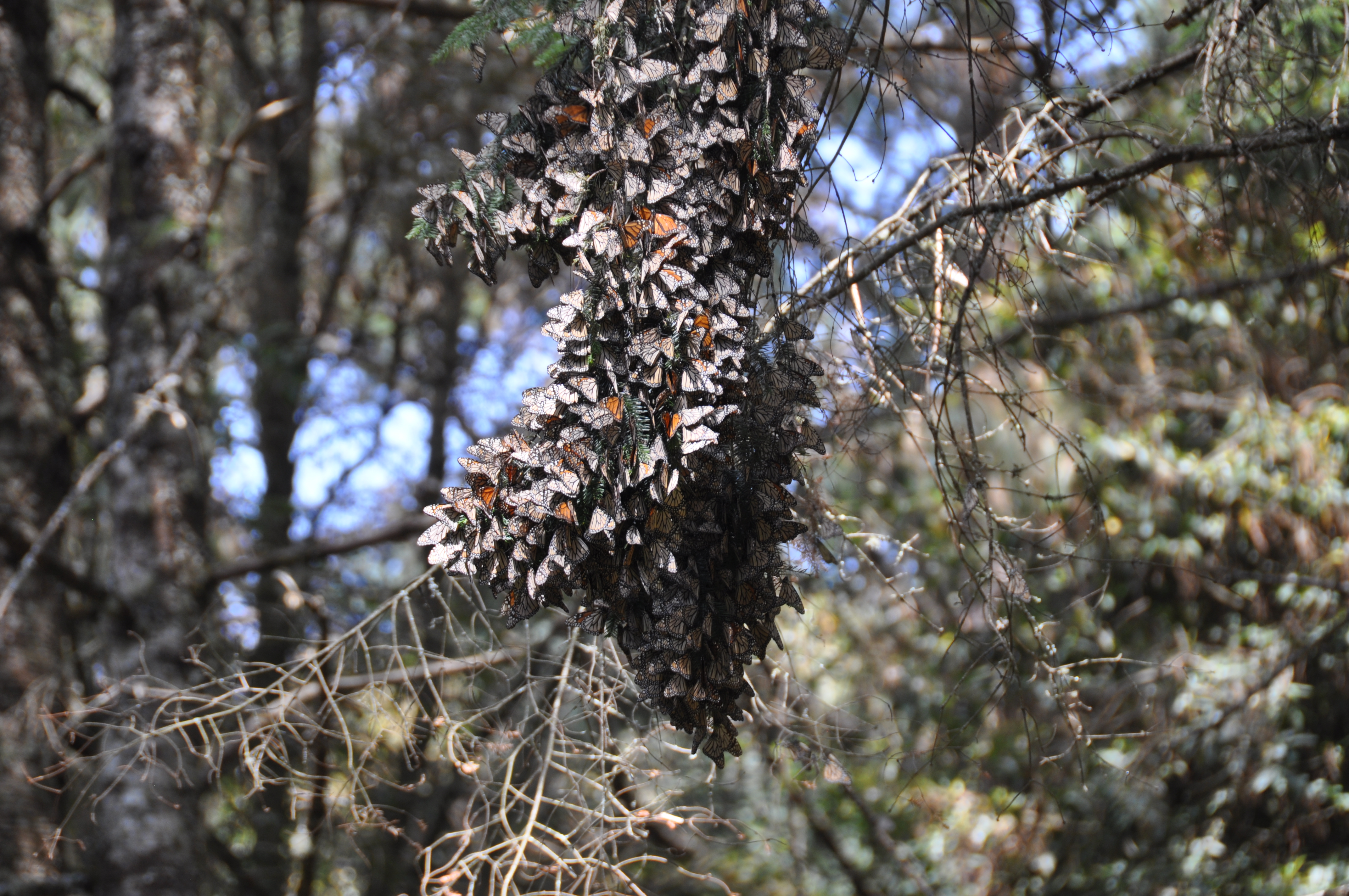PI

Delbert André Green II, PhD (he/him)
Assistant Professor of Ecology and Evolutionary Biology, University of Michigan-Ann Arbor
I’m interested in how novel complex traits arise and evolve. Butterflies have been a remarkable and versatile system for studying this fundamental problem. We are developing monarch butterfly migration as a focal trait to extend our understanding of how traits evolve on a dynamic planet.
Photo Credit: Daryl Marshke (University of Michigan)
Postdocs, Graduate Students, Research Technicians

Darene Assadia (she/her)
PhD Student (2023-)
M.A. Ecology and Evolutionary Biology, UM-Ann Arbor
B.Sci. Biological Sciences, University of Cincinnati
What are monarchs’ superpowers?
Darene integrates behavior, imaging, and transcriptomics to understand how migration shapes monarchs’ sensory and cognitive abilities (and vice versa).

G Harrison (she/her; they/them)
PhD Student (2023-)
M.S. Entomology, Virgina Tech
B.S. Biology, B.A. Philosophy, Georgia College
How did monarchs become special?
G takes a comparative genomics approach to understand the evolution of migration and migratory traits across the genus Danaus.

Sam Stratton (he/him)
PhD Student (2021-)
M.A. Biology, University of Cincinnati
B.S. Biology, B.A. Environmental and Sustainability Studies, Indiana University
How do migratory monarchs become migratory?
Sam uses transcriptomics to study how genetics and environmental cues are integrated to make migratory monarchs migratory.

Drew Tucker (he/him)
MA Student (2025-)
B.S. Ecology and Evolutionary Biology, University of Tennessee-Knoxville
What are monarchs’ superpowers?
Drew studies how behavioral variation contributes to monarchs’ ability to successfully complete their continental-scale migration.
Interested in joining the lab as a postdoc or graduate student? Please email me (dgreenii [at] umich [dot] edu) with a description of your interests and your CV/resume. The lab is a part of the Ecology and Evolutionary Biology Department at the University of Michigan. There will soon be opportunities for graduate students to join the lab through other UM training programs as well.
Undergrads
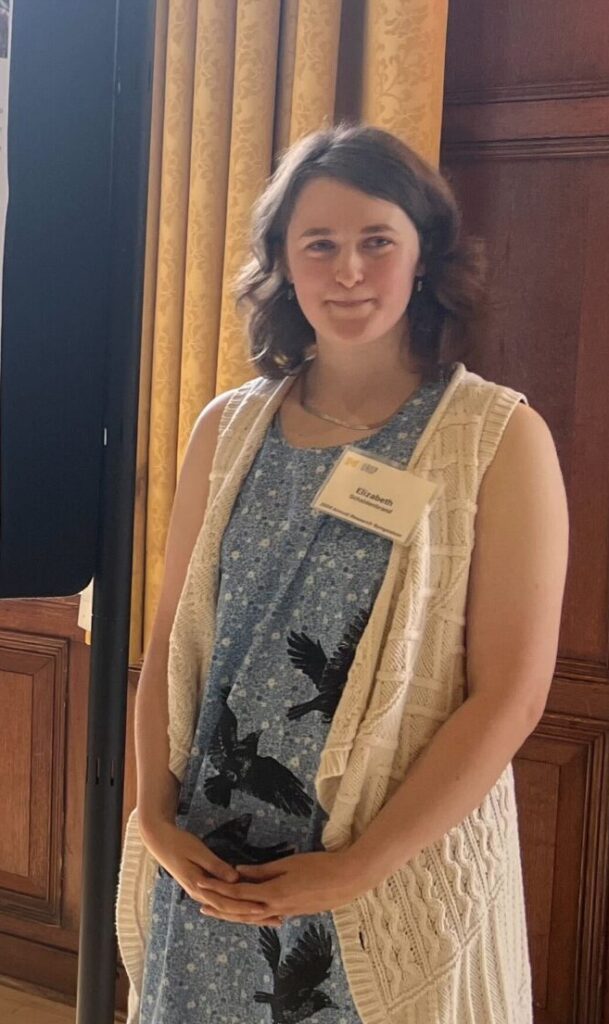
Elizabeth Schaldenbrand (she/her)
UM ’27

Jude Hopkins (he/him)
UM ’26
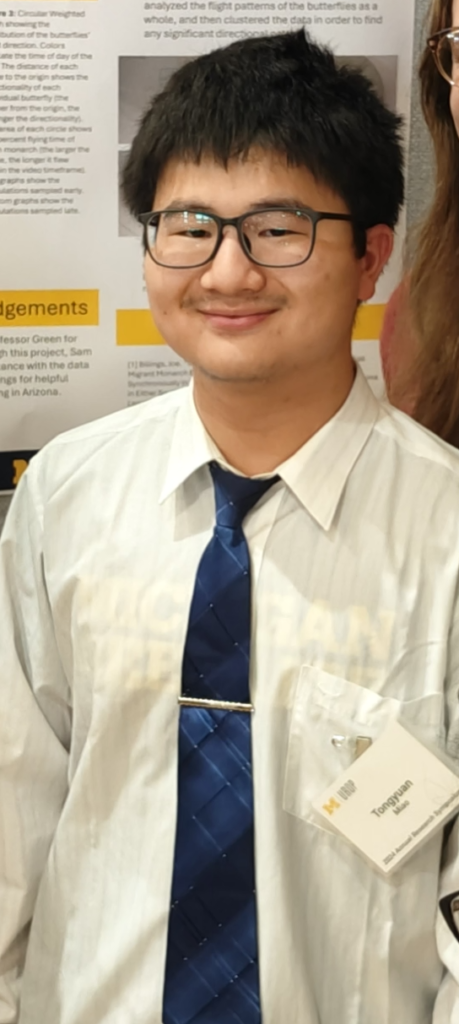
Tongyuan (David) Miao (he/him)
UM ’27
Are you an undergraduate (or high school student) who is interested in working in the lab? There are occasionally positions available to join our team as an undergraduate research assistant (through UROP, independent study, or other alternatives). Please email me (dgreenii [at] umich [dot] edu) 1) a thoughtful description of why you are interested in the lab and 2) your CV/resume (including contact information for at least one personal reference), if you have one.
Alumni






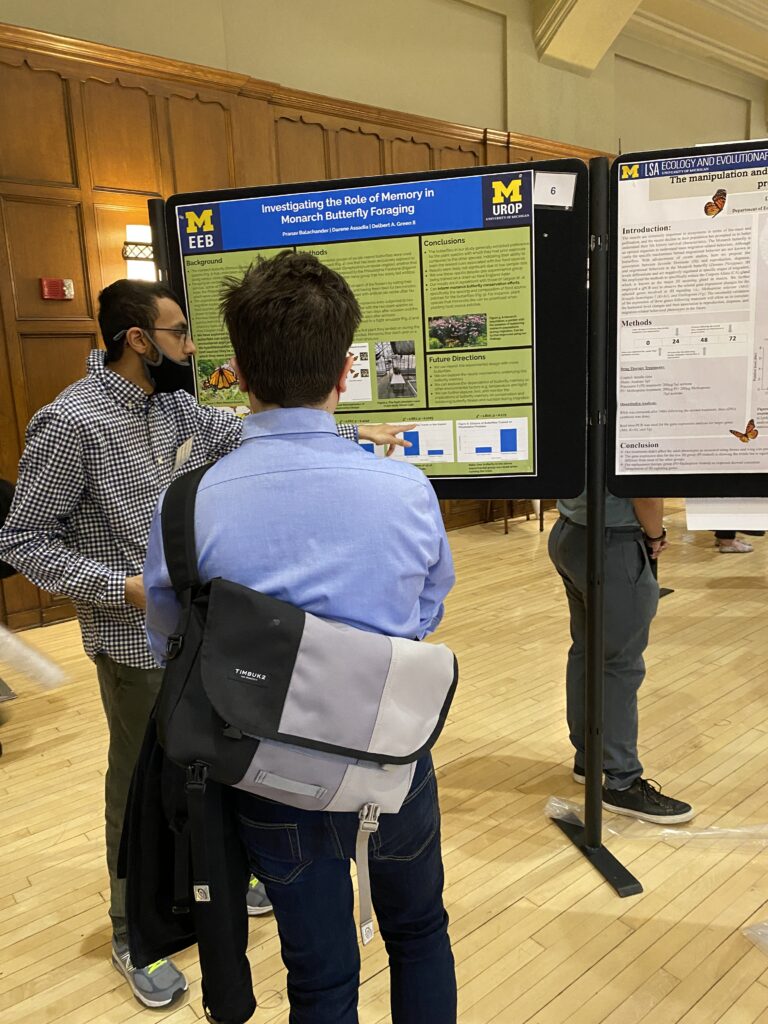

Current: UC Boulder (Grad Student)

Current: Wayne State U (Grad Student)

UM ’23

UM ’23


Current: Medical Student

UM ’21

Current: Northwestern U
(Grad Student)

Current: UC Berkeley Law (Grad Student)



